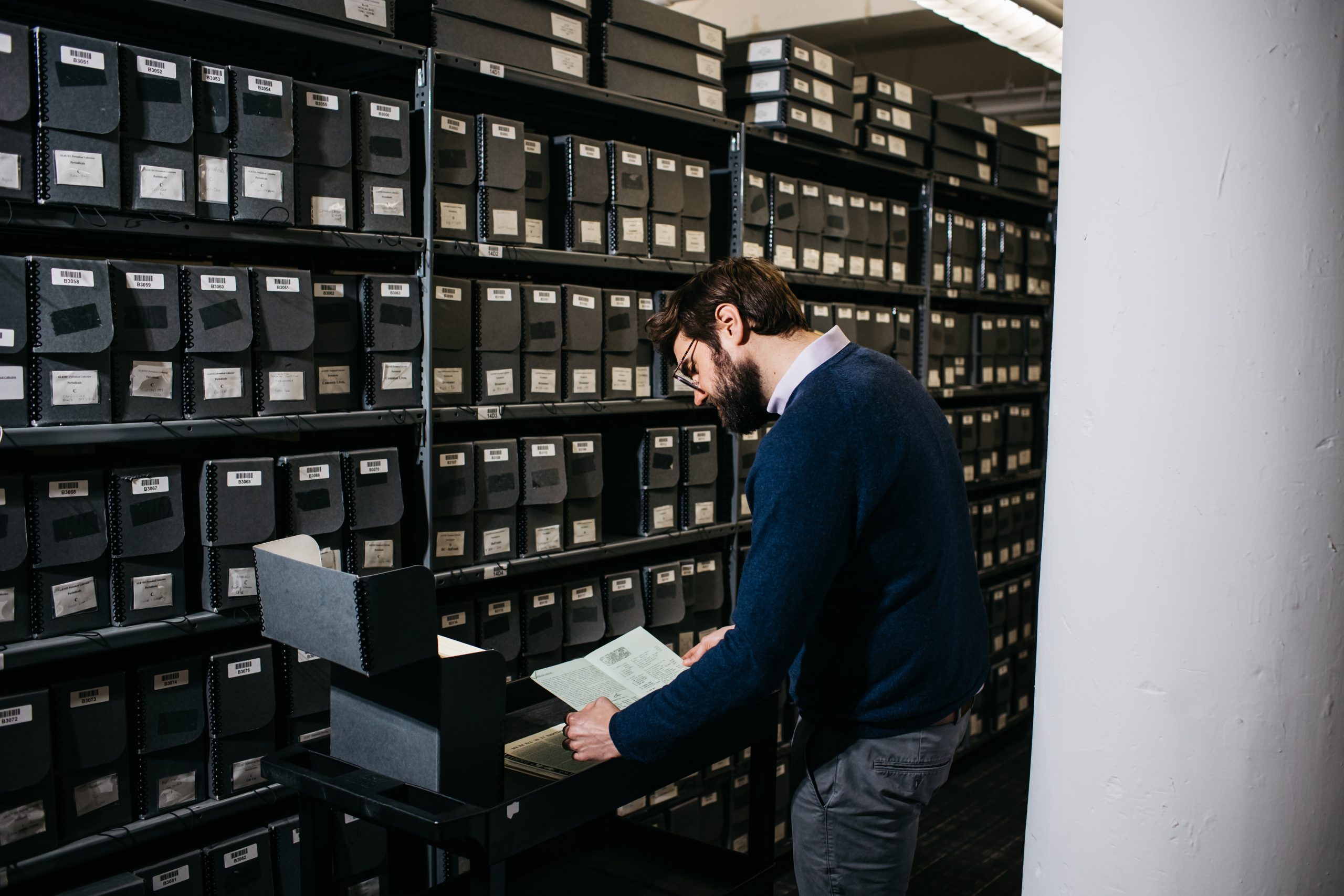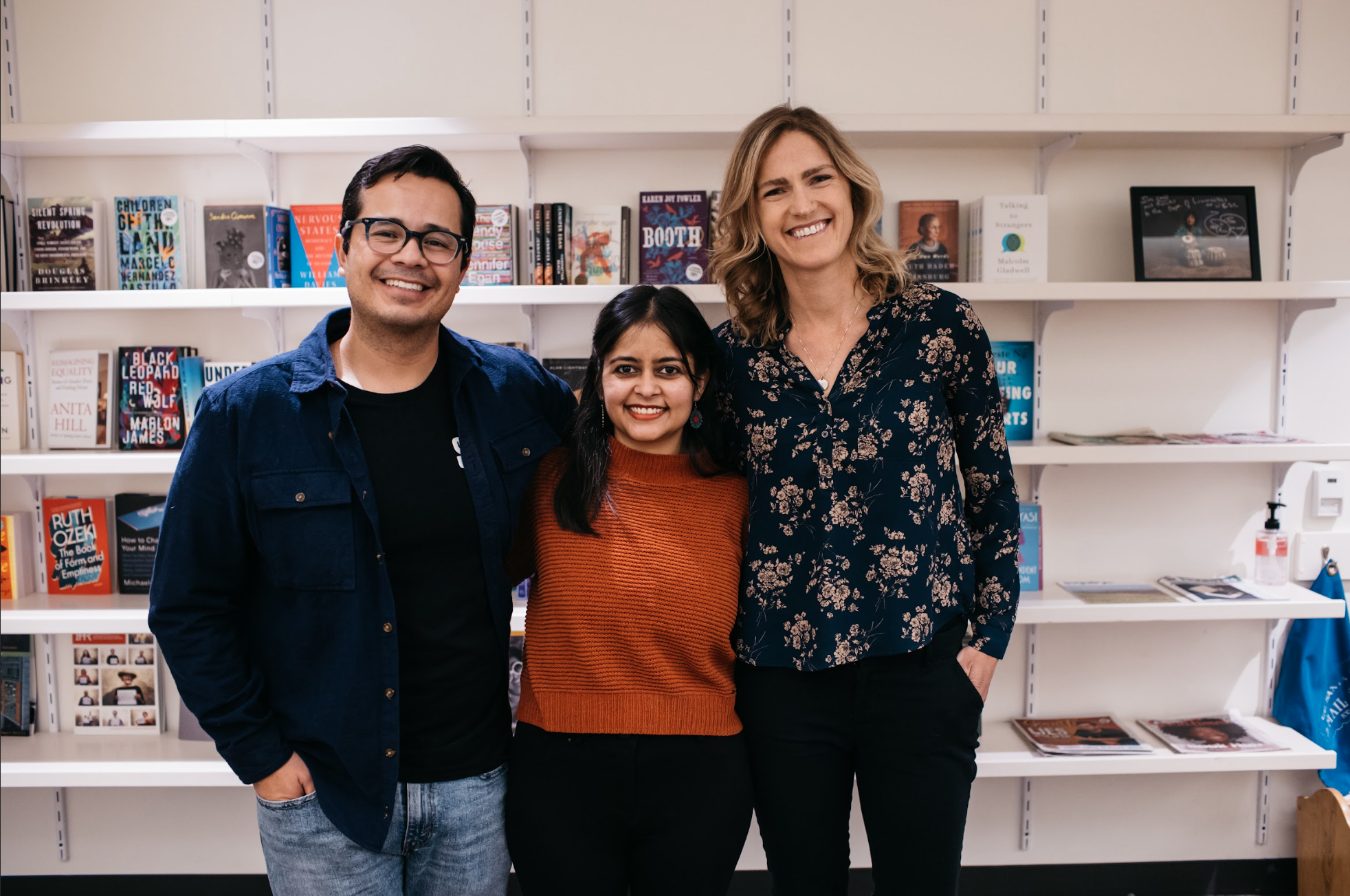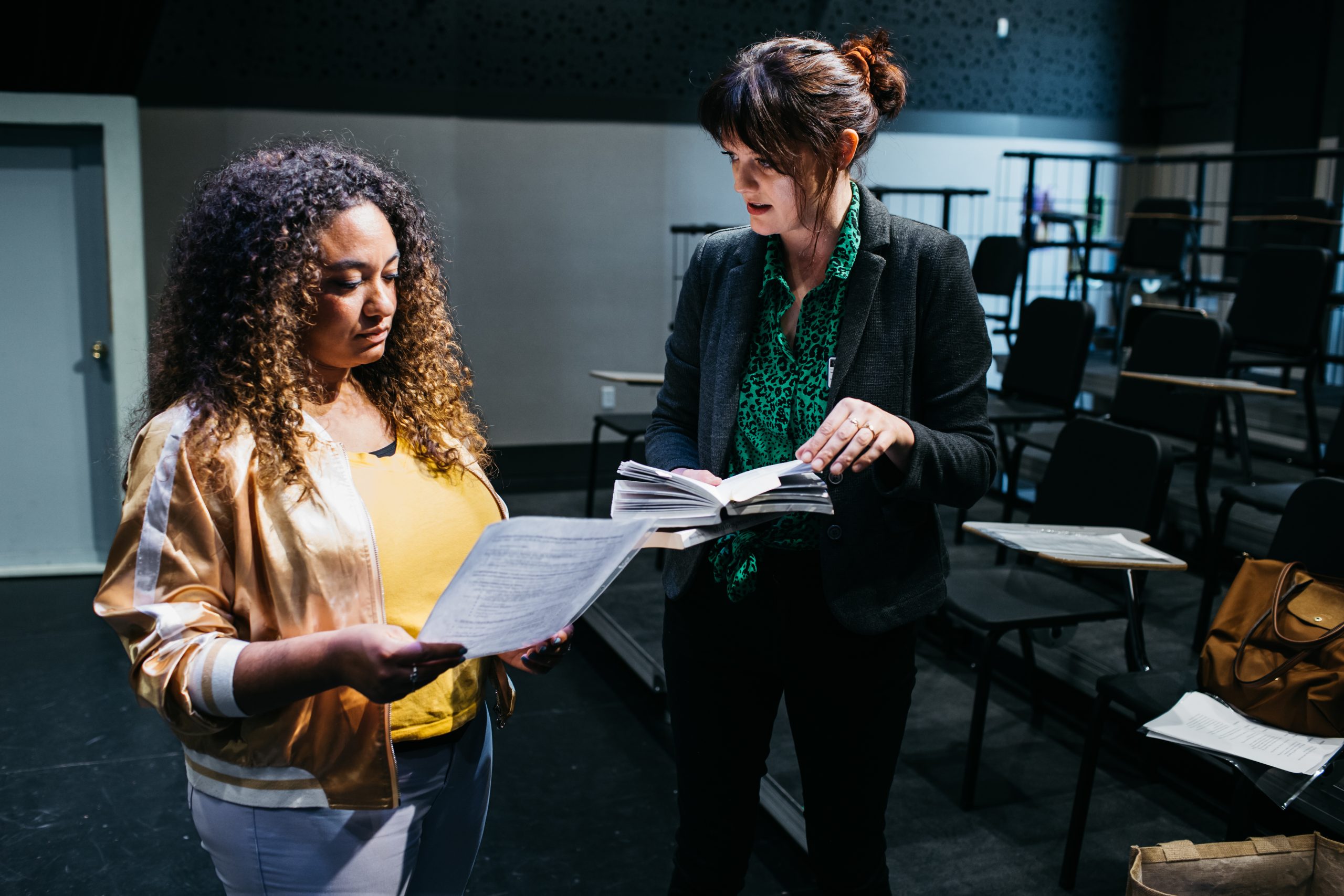Humanities in Action: THI Graduate Public Fellows Champion the Relevance of Humanities PhDs in a Changing World
An innovative Public Fellowship Program at the Humanities Institute (THI) is showing the important real-world impact of doctoral students’ humanities skills and expertise and offering exciting possibilities for the future of graduate education and career pathways. A new video about THI’s Public Fellowship program tells the story of humanities graduate students at UCSC who are bringing their humanities scholarship and training to organizations in Santa Cruz and around the world. The stories of THI Public Fellows are a testament to the vast opportunities for humanities PhDs and their ability to make impactful contributions to society, dispelling the notion that the decline in traditional academic positions equates to any lesser significance of a humanities education.
In connecting [graduate students] with communities outside of the academy, the Public Fellows program showcases the talents of humanities scholars, and what those talents can achieve in the world more broadly.
THI’s program demonstrates the tremendous possibilities for humanities doctoral students and shows how they are already actively enriching our society and working to build more just and equitable futures. A Shakespeare scholar translates her in-depth knowledge of lessons from plays that have remained relevant for over 400 years into social justice curriculum in high schools. A literature PhD student who studies South Asian languages works with a literary translation journal to publish translators and writers from other parts of the world, bringing these works to a US audience. Meanwhile, a historian uses his archival skills to preserve key historical materials from gay, lesbian, bisexual, and transgender communities and make them accessible to the public. By empowering graduate students to apply their humanities expertise in these types of contexts, THI’s Public Fellows program enhances their scholarship and prepares them for diverse careers while bringing tangible benefits to partner organizations and creating a ripple effect of value that extends far beyond academia. As THI Faculty Director, Pranav Anand, explains, “Those of us privileged to teach and learn from graduate students in the humanities have daily reminders of the deep value of their intellectual rigor, relentless curiosity, and enormous creativity. In connecting them with communities outside of the academy, the Public Fellows program showcases the talents of humanities scholars, and what those talents can achieve in the world more broadly.”

Through the THI Public Fellowship [at UC Press], I was able to take a peek behind the curtain and do the thing that I was studying.
For many THI Public Fellows, their positions not only open career pathways but the work also benefits their dissertation research. One of the PhD students featured in the recent video is Nathan Osorio, a Literature student who received a Yearlong THI Public Fellowship to work with the Acquisitions Editorial team at UC Press. His work included developing a scouting list of prospective writers from feminist studies, criminology, law, economics, and technology studies, that UC Press might consider for publication in the future. For Osorio, the program provided a key opportunity to get hands-on experience with publishing, an industry Osorio writes about as a scholar of Latinx poetics, but had not experienced first-hand. He explains, “I spend a lot of time thinking about how communities build knowledge and how they move it from one place to another. Through the THI Public Fellowship [at UC Press], I was able to take a peek behind the curtain and do the thing that I was studying.” The program gave Osorio the chance to bring his expertise on marginalized writing communities to the UC Press Acquisitions team, while gaining inside experience about how book projects are selected and cultivated by a major academic press. “This has really shifted the way I write and the way I think about the problems I study.”

It really matters to be doing these kinds of Public Fellowships because programs like this are partnerships, rather than just being tucked away in a university, doing your studies isolated in your room or in the library alone.
Other stories from THI’s Public Fellowship program further exemplify how humanities PhD students bring their scholarly background to projects with partner organizations. Katie O’Hare, a PhD Candidate in Literature, who has served as a THI Public Fellow and C.L. Barber Fellow with Santa Cruz Shakespeare drew on her literary expertise and her pedagogical experiences to contribute to the Shakespeare and Social Justice program. Working with Rebecca Haley Clark, Santa Cruz Shakespeare’s Education Programs Manager, O’Hare developed a curriculum for high school students reading Shakespeare’s plays through the lens of social justice issues. O’Hare’s scholarly expertise has been immensely beneficial for Santa Cruz Shakespeare, as Clark explains: “Having a Public Fellow from The Humanities Institute is an invaluable part of our education department here at Santa Cruz Shakespeare because we have someone whose studies are focused specifically in the field that we are trying to introduce more students to. I consider Katie to be my expert in the field.” Meanwhile, O’Hare emphasizes how meaningful her work with Santa Cruz Shakespeare has been and how the collaboration has allowed her to have a more significant impact in the world. “This is what it should be about,” she says. “It really matters to be doing these kinds of Public Fellowships because programs like this are partnerships, rather than just being tucked away in a university, doing your studies isolated in your room or in the library alone.”

Since its inception in 2016, THI’s Public Fellows Program has connected more than 60 graduate students with 45 organizations in Santa Cruz and around the world, including The Center for the Study of the Holocaust and Religious Minorities in Oslo, Norway, the Tucson Chinese Cultural Center, the Japanese American Museum in San Jose, and the Santa Cruz Museum of Art and History. In 2019, THI expanded the program to incorporate a vibrant undergraduate component that also provides humanities majors and minors with paid opportunities to partner with organizations outside of the university. In several cases, THI Graduate Public Fellows have served as mentors for THI Undergraduate Public Fellows creating a multi-layered mentorship structure with manifold benefits. As part of the program, THI Research Programs and Communications Manager, Saskia Nauenberg Dunkell, meets with students to discuss connections between their academic scholarship and positions and reflect on the skills and training they are gaining through their Public Fellowship experiences. Dunkell describes, “these partnerships are often transformative for students and in some cases directly lead to job offers. It’s opening up a whole new world of possibilities.”
Our three pillars of work are research, student success, and public engagement, and the Public Fellows program exemplifies how important it is for these pillars to work together.
THI Managing Director, Irena Polić, who co-founded the program, shares how this initiative is part of the institute’s larger mission. “Our three pillars of work are research, student success, and public engagement, and the Public Fellows program exemplifies how important it is for these pillars to work together. We have been actively engaged in local and national conversations around graduate education in the humanities for a decade now and are extremely proud of the pioneering work we’ve done in this area.”
THI’s Public Fellowship Program is part of a call to ensure that humanities scholars are brought into organizations and companies in a range of sectors – from nonprofits to government to technology – in a world that needs their insights more than ever. As Osorio describes, the key is to remember how important it is to keep building those bridges outside the academy. As he explains, “if the humanities stays in the university, then it’s not achieving its full potential.” This is why the THI Public Fellows Program is so important. Because it “brings the humanities to the people that need it, to the publics we want to see represented within it. It’s about working not only solitarily, but in the streets, in the libraries, in the bookshops, and with the people who have the most to gain from it.”
See the 8 minute video here and learn more about THI’s Public Fellows program here.
THI Public Fellowships have been made possible by generous support from the Mellon Foundation, the UCSC Division of Graduate Studies, Office of the Campus Provost, and the Division of Humanities.
Banner Image: Literature PhD Candidate and THI Public Fellow Katie O’Hare (green blouse) and Santa Cruz Shakespeare’s Rebecca Haley Clark (yellow blouse) lead a group of students through an acting exercise. Credit to West Cliff Creative for the photos and videos in this story.
